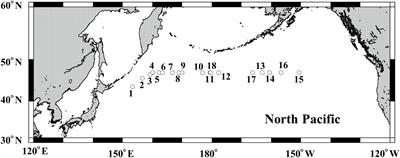ORIGINAL RESEARCH
Published on 02 Oct 2024
The modified artificial cohort method for three dominant pelagic copepods in the northern North Pacific revealed species-specific differences in the optimum temperature
doi 10.3389/fmars.2024.1397721
- 505 views

